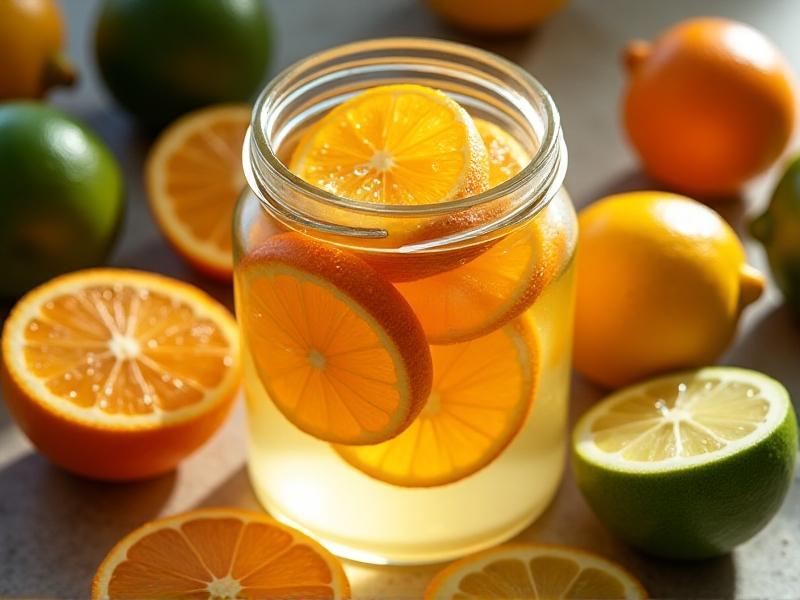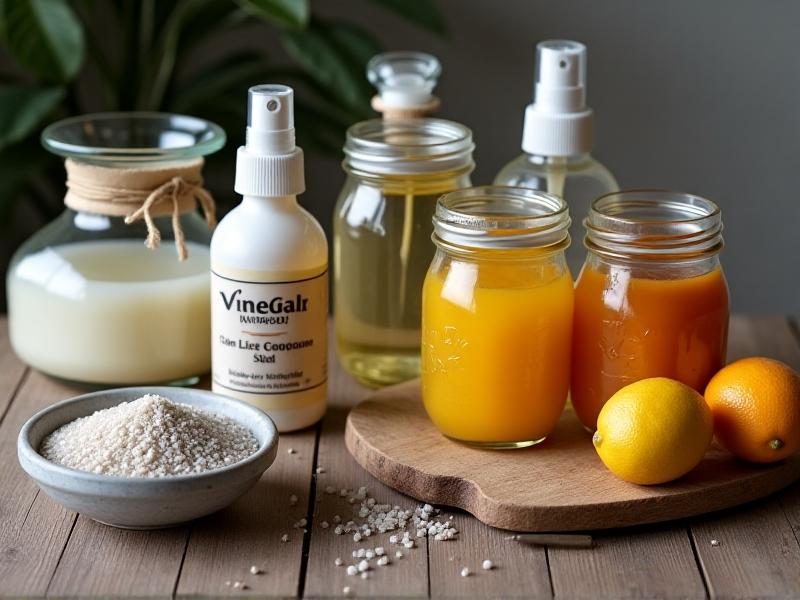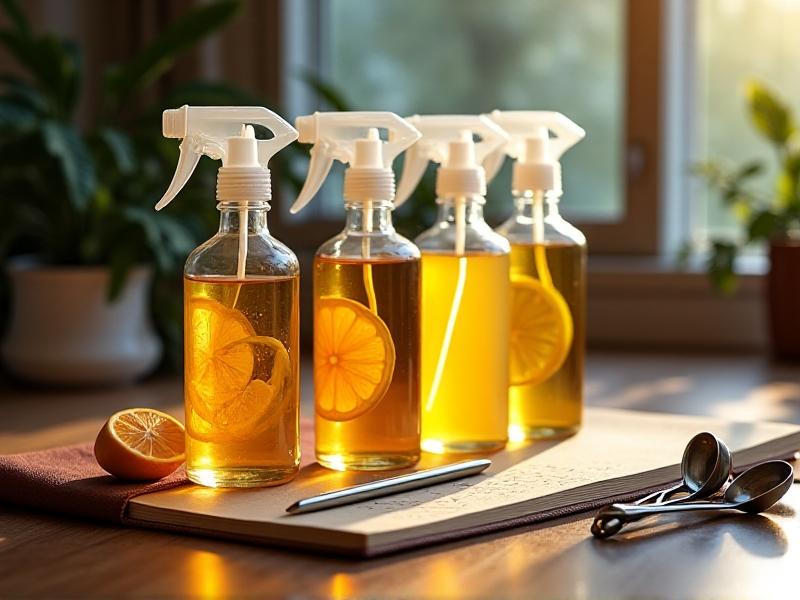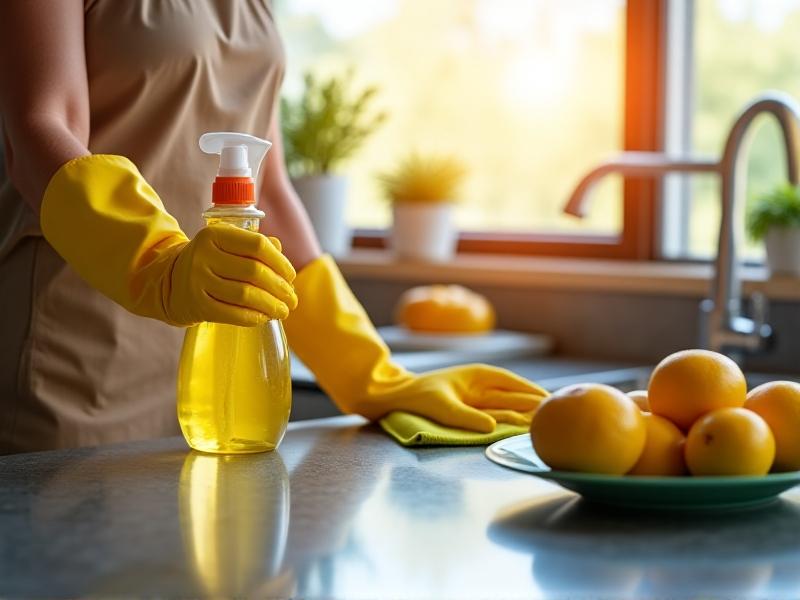Citrus Solvent Secrets: DIY Cleaners for Stubborn Grime
The Science Behind Citrus Solvents: Why They Cut Through Grime

Citrus fruits aren’t just for zesting up your water or garnish—their natural oils pack a punch when it comes to breaking down grime. The secret lies in a compound called d-limonene , a terpene found in citrus peels. This oily substance is hydrophobic, meaning it repels water but bonds effortlessly with fats, oils, and grease. When used in cleaning solutions, d-limonene acts like a magnet, lifting stubborn residues from surfaces without the need for harsh chemicals. Studies have shown it’s effective against everything from adhesive residues to kitchen grease, making it a powerhouse for DIY enthusiasts.
What makes citrus solvents particularly appealing is their biodegradability. Unlike petroleum-based solvents, d-limonene breaks down naturally, reducing environmental impact. Plus, the fresh scent of citrus replaces the acrid smell of conventional cleaners, turning chores into a more pleasant experience. However, concentration matters—using undiluted citrus oil can damage certain surfaces, so balancing it with carriers like vinegar or alcohol is key to safe, effective cleaning.
Essential Tools and Ingredients for DIY Citrus Cleaners

Creating your own citrus-based cleaners doesn’t require a lab or rare ingredients. Start with fresh citrus peels—oranges, lemons, and grapefruits work best—and pair them with household staples like white vinegar, isopropyl alcohol, or castile soap. A glass jar for infusing peels into vinegar, a spray bottle for dispensing solutions, and a grater for zesting are the only tools you’ll need. For abrasive tasks, combine citrus-infused vinegar with baking soda or salt to create scrubs that tackle baked-on messes.
Quality matters: Opt for organic citrus when possible to avoid pesticide residues in your peels. If fresh fruit isn’t available, food-grade citrus essential oils can substitute, though they lack the pectin and fibers found in fresh peels that add mild scrubbing power. Always label mixtures with dates and ingredients to avoid confusion, and store them in cool, dark places to prolong shelf life.
Five Citrus Cleaner Recipes for Every Stubborn Stain

1. All-Purpose Citrus Spray: Steep citrus peels in white vinegar for two weeks, strain, and mix with equal parts water. Add 10 drops of lemon essential oil for extra potency. Ideal for countertops and glass. 2. Degreasing Citrus Scrub: Combine citrus-infused vinegar with baking soda to form a paste. Apply to greasy stovetops or oven interiors, let sit, then scrub with a brush. 3. Carpet Freshener: Dry citrus peels, grind into powder, and mix with baking soda. Sprinkle on carpets, wait 15 minutes, then vacuum. 4. Bathroom Mold Fighter: Mix grapefruit seed extract (a natural antifungal) with water and spray on shower tiles. Wipe after 10 minutes. 5. Citrus Wood Polish: Blend olive oil with lemon juice (1:1 ratio) and buff onto furniture for a streak-free shine.
Each recipe balances efficacy with safety. For example, the degreasing scrub avoids harsh abrasives that scratch surfaces, while the wood polish nourishes instead of stripping finishes. Test solutions on small areas first—citrus oils can sometimes react with sensitive materials like stone or untreated wood.
Safety and Sustainability: Using Citrus Cleaners Responsibly

While citrus solvents are gentler than many commercial products, they’re not without precautions. Undiluted citrus oils can irritate skin or eyes, so gloves are recommended during preparation and use. Avoid using acidic citrus solutions on marble or granite, as prolonged exposure may etch surfaces. Always ventilate areas when spraying citrus-alcohol mixtures, as fumes can be strong.
Environmentally, citrus cleaners shine. They break down quickly in waterways and don’t contribute to toxic buildup. Reusing glass jars and spray bottles reduces plastic waste, aligning with zero-waste goals. For an even smaller footprint, compost used citrus peels after infusing them—they’ll enrich soil instead of clogging landfills.
Beyond the Kitchen: Unexpected Uses for Citrus Solvents
Citrus solvents aren’t confined to kitchens and bathrooms. Use them to remove price tags from glassware, refresh musty gym bags, or even polish tarnished jewelry. The oil’s antibacterial properties make it a safe choice for cleaning children’s toys, while its fresh scent revives upholstery and car interiors. Gardeners can even deploy citrus sprays to deter aphids without harming plants.
Innovative applications keep evolving. One user reported success in removing dried latex paint from brushes by soaking them in citrus-infused vinegar. Another found that wiping down tools with a lemon-based solution prevented rust. The takeaway? With a little creativity, citrus solvents can replace a surprising number of specialized products, simplifying your cleaning arsenal.








